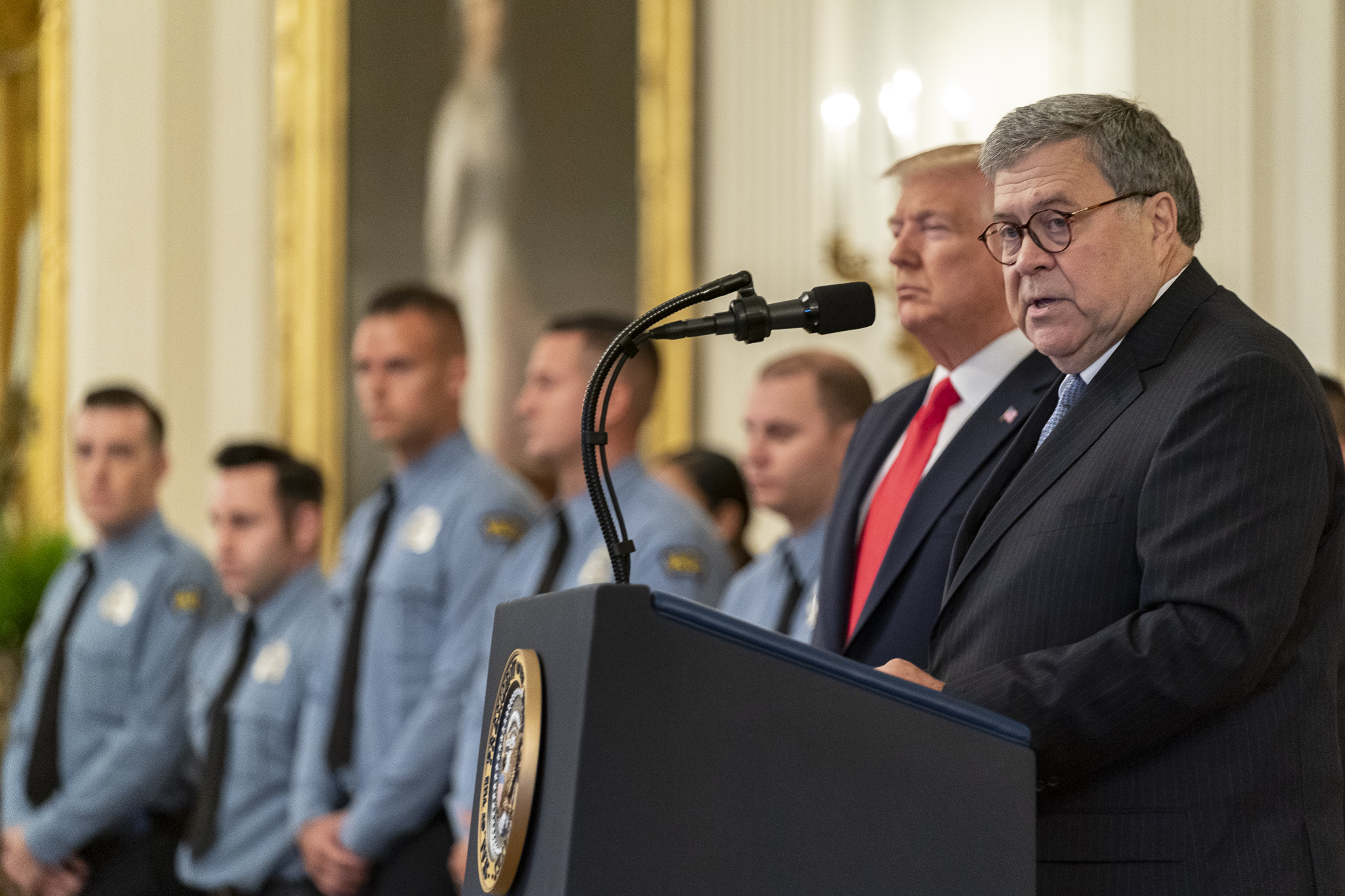Today's Headlines and Commentary
Last week, a Central Intelligence Agency (CIA) drone strike killed al Qaeda’s second in command, Nasir al-Wuhayshi. The militant organization released a video yesterday, confirming al-Wuhayshi’s death. According to the Wall Street Journal, this loss represents “the biggest blow to the terrorist organization since Osama bin Laden was gunned down in a 2011 U.S. commando raid in Pakistan.”
Published by The Lawfare Institute
in Cooperation With

Last week, a Central Intelligence Agency (CIA) drone strike killed al Qaeda’s second in command, Nasir al-Wuhayshi. The militant organization released a video yesterday, confirming al-Wuhayshi’s death. According to the Wall Street Journal, this loss represents “the biggest blow to the terrorist organization since Osama bin Laden was gunned down in a 2011 U.S. commando raid in Pakistan.”
Al-Wuhayshi led al Qaeda’s dangerous Yemen branch, known as al Qaeda in the Arabian Peninsula (AQAP). The Washington Post reports that al-Wuhayshi “was largely responsible for reestablishing a foothold for al Qaeda in bin Laden’s ancestral home, after the group was broken up inside Saudi Arabia in the years after the Sept. 11, 2001 attacks.” In its video, the terrorist group announced that Qassim al-Raimi, who had served as al-Wuhayshi’s deputy, will take over his position.
The Associated Press notes that two other al Qaeda operatives were killed during the same strike.
Kurdish forces have retaken a key city along Syria’s Turkish border. The Post reports that the Kurdish People’s Protection Unit (YPG), in cooperation with the Free Syrian Army, captured Tal Abyad from the Islamic State after just two days. Apparently, the terrorist group put up little opposition. Its fighters either defected or fled, calling into question the Islamic State’s “vaunted military capabilities.” The loss represents the militant organization’s first major setback since it was routed from Tikrit in April.
“If we think ISIS is truly a threat to the United States, ...we have to be willing to put Americans at risk,” noted former Defense Secretary Robert Gates during an exclusive interview with Yahoo! News.
The National Journal asked foreign policy experts what the United States should do to combat the Islamic State. The fourteen solutions, found here, run the gamut - from bombing to staying out to creating a Middle East union.
Some ten months after taking office, Afghan President Ashraf Ghani’s government may finally have a defense minister. With Afghanistan battling a brutal Taliban insurgency, Masoom Stanekzai will take on the role, reports the AP. Stanekzai previously led the High Peace Council, tasked with negotiating a resolution to the fight against the Taliban.
The New York Times shares an interview with former Afghan President Hamid Karzai - who insists he has no plans to return to government.
The U.S. is looking to reassure its NATO allies in Europe of its commitment to them in the face of increased Russian aggression. Indeed, the U.S. is currently participating in Saber Strike 15 joint military exercises in Poland, Latvia, and Lithuania. The Post shares photos.
Furthermore, at the Paris Air Show, Air Force Secretary Deborah Lee James affirmed, “The biggest threat on my mind is what is happening in Russia. That is a big part of why I am here.” The Wall Street Journal reports that the U.S. Air Force intends to increase its forces in Europe.
However, any U.S. plan to increase its presence in Europe is likely to lead to retaliation. According to Reuters, Moscow has promised to increase the forces stationed near its western border, if serious U.S. military equipment is stored in eastern European countries, such as Poland and the Baltic states.
Meanwhile, fighting continues to worsen in eastern Ukraine, in spite of February’s ceasefire agreement. The Ukrainian military announced today that two of its servicemen have been killed and five more wounded in the past twenty-four hours. Likewise, separatists claim that three of their members and five civilians have been hurt by recent government bombing. Reuters reports the story.
Defense One outlines the five cyber attacks, perpetrated by Chinese hackers against U.S. targets, which may actually be more harmful than the recent strike on the U.S. Office of Personnel Management (OPM).
According to former CIA Director Gen. Michael Hayden, the OPM attack “is not ‘shame on China. This is ‘shame on us’ for not protecting that kind of information.” Hayden says he “would not have thought twice” about stealing equivalent data from the Chinese government during his tenure at the CIA and the National Security Agency (NSA). The Wall Street Journal shares more of his statements.
Over at Wired, Bruce Schneier - who contributes here at Lawfare, too - explains why China and Russia almost certainly have copies of the cache of documents stolen by former NSA contractor Edward Snowden. However, according to Bruce, it probably is not Snowden’s fault.
The Times explains how the British intelligence community’s bulk collection of Internet data led to a 2008 drone strike which killed the Rashid Rauf, the bomber behind the July 2005 attacks in London.
As Congress debates the National Defense Authorization Act for FY 2016, Defense One looks at some of the political rhetoric surrounding the proposed bills. Four have been offered - one each from the Senate Republicans, Senate Democrats, House Republicans, and House Democrats. Military Times examines how they would affect military pay, housing, commissary support, and healthcare, while the Center for the Study of the Drone at Bard College shares part two of its analysis of drones in the defense budget.
ICYMI: Yesterday, on Lawfare
Bobby considered the AUMF questions associated with the U.S. airstrike on former al Qaeda operative Mokhtar Belmokhtar.
Ryan Scoville discussed Congress’ role in international diplomacy, following the Supreme Court’s ruling in Zivotofsky v. Kerry.
Wells flagged news that six Guantanamo Bay detainees had been transferred to Oman.
Bruce Riedel explained why the Yemeni peace talks are unlikely to advance.
Yishai Schwartz considered the notion of separability with regard to the different types of economic sanctions imposed by the U.S. against Iran.
Ben shared a chart depicting the outcome of Guantanamo cases under the Obama administration.
Yishai posted a scathing letter written by Senate Foreign Relations Committee Chairman Bob Corker (R-TN) excoriating the current P5+1 nuclear negotiations with Iran.
In honor of the eight-hundredth anniversary of the signing of the Magna Carta, Bobby explained the document’s role in the principle against a state’s capacity to arbitrarily capture and kill.
Ben pointed out the double standard inherent in the privacy community’s coverage of the Chinese hack on OPM.
Charlie Dunlap outlined his initial impressions of the cyber chapter of the Pentagon’s new Law of War Manual.
Email the Roundup Team noteworthy law and security-related articles to include, and follow us on Twitter and Facebook for additional commentary on these issues. Sign up to receive Lawfare in your inbox. Visit our Events Calendar to learn about upcoming national security events, and check out relevant job openings on our Job Board.




